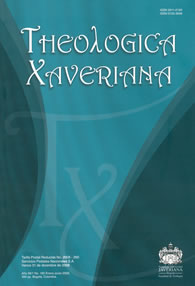Abstract
This paper deals with the Anselmian Corpus spirituale, constituted by nineteen prayers and three meditations. Written in the course of twenty years, these texts collect and celebrate as a perennial homage the giving itself of the human spirit to the sources of transcendence. The introduction points to the characteristics of this language of prayer. Then it considers the style and the method that help to understand the Corpus. In the central section the Oratio ad Deum, written between 1103 and 1105, is analysed. The conclusions point to Anselm’s figure among those theologians who see the need of seeking a verbal
expression to their speculative work as much as to their innermost spiritual life. For that reason the language is at the service of a pedagogical intention, and the reader is not left out of the spiritual climate that accompanies that language. It is an itinerary that continually invites to the transformation of one´s own attitude.
This journal is registered under a Creative Commons Attribution 4.0 International Public License. Thus, this work may be reproduced, distributed, and publicly shared in digital format, as long as the names of the authors and Pontificia Universidad Javeriana are acknowledged. Others are allowed to quote, adapt, transform, auto-archive, republish, and create based on this material, for any purpose (even commercial ones), provided the authorship is duly acknowledged, a link to the original work is provided, and it is specified if changes have been made. Pontificia Universidad Javeriana does not hold the rights of published works and the authors are solely responsible for the contents of their works; they keep the moral, intellectual, privacy, and publicity rights.
Approving the intervention of the work (review, copy-editing, translation, layout) and the following outreach, are granted through an use license and not through an assignment of rights. This means the journal and Pontificia Universidad Javeriana cannot be held responsible for any ethical malpractice by the authors. As a consequence of the protection granted by the use license, the journal is not required to publish recantations or modify information already published, unless the errata stems from the editorial management process. Publishing contents in this journal does not generate royalties for contributors.


